18 Mar Responding To Your Coaching Needs
I often get asked by potential coaching clients “So how can you help me? You don’t know me. You don’t know my circumstances.”
Eureka’s mission and passion is to guide individuals, groups, and organisations in a process of self-discovery and transformation that will unleash the power within and to provide an environment for professional and personal development. Everyone’s journey is different – there is no set pattern to coaching assignments.
How Eureka coaching assignments work
Eureka provides a tailor made service. The coach and client work together to design a unique coaching process that will create the desired positive outcomes.
Eureka typically works with clients via Skype, although we can sometimes coach over the telephone or via email if circumstances prevent an in-person meeting.
The foundation to creating the best coaching relationship includes:
Listening, talking, feedback, discussions, perspective, validation, planning, teaching, communication, solutions, structure, exercises, strategies and resources.
The coaching process can be broken down into five steps. The exact determination of the dividing lines between the individual steps is less important than the approach that is taken to address the issues that arise during the process as a whole.
1. Careful Contracting
It takes skill to create a trusting environment in which open dialogue can occur and underlying issues can be brought to light. A great deal of honest communication and feedback will set the parameters of the coaching process.
A contracting meeting for the purposes of defining expectations should take place before the individual coaching begins. The objectives of the contracting dialogue include:
Identification of success factors
Agreement regarding confidentiality boundaries
Identification of specific results expected
Confirmation that the chemistry is right
Clarity regarding roles and responsibilities
Agreement regarding milestones and timelines
Agreement regarding financial terms
2. Comprehensive Assessment
The second step in the executive coaching process is the assessment of each individual. There are many types of assessments available and our experience at Eureka shows us that the following are effective in assessing the individual and are used as appropriate to the individual assignment
360º feedback
Shadowing the client in the workplace
Face to face interviews
Psychometric assessment (Myers Briggs Type Indicator or Keirsey Temperament Sorter) by our qualified assessor.
3. Action Planning
The action plan must focus on behaviours that contribute to specific outcomes. A typical action plan includes:
Strengths
Areas for development
Action steps required, or interventions needed in areas requiring improvement or further development
The type of coaching style that will best suit the development process
Suggestions for active learning or experiential development suggestions
Key milestone setting
4. Active Learning
Once the action plan is agreed, the coach guides and reinforces the development strategies, which can include techniques such as action learning, role play, case study, simulation, video feedback, shadowing, and journaling, to name but a few.
This step is usually supported by a series of one to one meetings. These dialogues help to ensure the milestones are being met and the ground rules are being followed, and the coaching process continues to be focused on the action plan.
5. Reviewing and Sustaining Success
The action plan is continually reviewed, progress checked and celebrated and new plans put in place.

